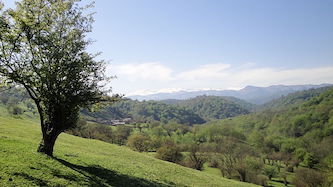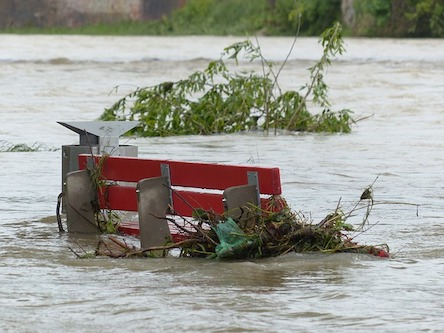Cold weather can really affect our bodies, even if it doesn’t seem that cold outside. A recent experiment showed how living in a cold home can be bad for our health. The experiment was done at 10 degrees Celsius, which is the average temperature in homes that don’t have heating because people can’t afford it. Even at this temperature, our heart, lungs, and brain can be seriously affected.
The experiment was done in a special room where scientists could control the temperature, humidity, and oxygen levels. The person taking part in the experiment was connected to monitors to keep track of their body temperature, heart rate, and blood pressure. As the temperature dropped from a comfortable 21 degrees Celsius to 10 degrees Celsius, the body started to react. Sweating stopped, hairs stood up to keep warm, and blood vessels in the hands got smaller to keep the important organs warm.
The effects of cold weather on the body were also shown by the person’s muscles shaking and changes in blood flow to the brain. The brain didn’t get as much oxygen and glucose, which made it harder to think clearly. But the body’s main goal of keeping warm stayed the same, even though it had to work harder. The heart had to pump harder to keep warm blood flowing, and blood pressure went up, which can be dangerous for the heart.
It’s really important to know that cold weather can be dangerous. In fact, it’s more dangerous than hot weather. Cold weather also makes it easier for viruses, like the flu, to spread, and it increases the risk of getting infections like pneumonia. When we’re indoors with the windows closed and no fresh air, it’s easier for viruses to spread. Cold air also weakens our immune system in our nose, which makes it easier for viruses to grow.
To protect ourselves from the effects of cold weather, we should wear warm clothes, like woolly clothes. It’s more important to wear gloves and warm socks than a hat, but a hat can also help. Eating foods with lots of carbohydrates can help keep us warm, and staying active instead of sitting still can also help. Overall, it’s really important to know how cold weather affects our bodies and take the right steps to stay healthy.
Original news source: Cold weather: What does an unheated room do to your body? (BBC)
Listen
Slow
Normal
Fast
Group or Classroom Activities
Warm-up Activities:
– News Summary
Instructions: Divide the class into pairs. Each pair will read the article together and then summarize the main points in their own words. After a few minutes, ask each pair to share their summary with the class and discuss any differences or similarities between the summaries.
– Sketch It
Instructions: Give each student a piece of paper and a pen or pencil. Instruct them to sketch a visual representation of the effects of cold weather on the body based on the information in the article. After a few minutes, have the students share their sketches with a partner and explain their drawings. Then, invite a few students to share their sketches with the whole class.
– Vocabulary Pictionary
Instructions: Write a list of vocabulary words from the article on the board (e.g. temperature, humidity, glucose, immune system). Divide the class into two teams. Call out one vocabulary word at a time and have one student from each team come to the board to draw a quick sketch to represent the word. The rest of the team must guess the word based on the sketch. The team that guesses correctly earns a point. Continue until all the vocabulary words have been used or until time runs out.
– Pros and Cons
Instructions: Divide the class into two groups. One group will discuss the pros of cold weather, while the other group will discuss the cons. Give the groups a few minutes to brainstorm their ideas. Then, have a representative from each group present their arguments to the class. Encourage the class to ask questions or challenge the arguments presented. After both groups have presented, facilitate a class discussion on the topic, allowing students to share their own opinions and perspectives.
– Future Predictions
Instructions: In pairs or small groups, have the students discuss and make predictions about the future effects of cold weather on our bodies. They should consider potential advancements in technology, changes in climate, and other factors that may influence how cold weather affects our health. After the discussion, ask each group to share their predictions with the class. Encourage the class to ask follow-up questions or challenge the predictions presented.
Comprehension Questions:
1. How does living in a cold home affect our health?
2. What temperature was the experiment conducted at?
3. What factors were scientists able to control in the special room?
4. What changes did the body go through as the temperature dropped?
5. How did the person’s muscles react to the cold weather?
6. How did the brain’s oxygen and glucose levels change in the cold?
7. Why is cold weather more dangerous than hot weather?
8. How can cold weather make it easier for viruses to spread?
Go to answers ⇩
Listen and Fill in the Gaps:
Cold weather can really (1)______ our bodies, even if it doesn’t seem that cold outside. A recent (2)______ showed how living in a cold home can be bad for our health. The experiment was done at 10 degrees (3)______, which is the average temperature in (4)______ that don’t have heating because people can’t afford it. Even at this temperature, our heart, lungs, and brain can be seriously affected.
The experiment was done in a special room where scientists could control the temperature, humidity, and oxygen levels. The person taking part in the experiment was (5)______ to monitors to keep track of their body temperature, heart rate, and blood pressure. As the temperature dropped from a comfortable 21 (6)______ Celsius to 10 degrees Celsius, the body started to react. Sweating stopped, hairs stood up to keep warm, and blood vessels in the hands got smaller to keep the (7)______ organs warm.
The (8)______ of cold weather on the body were also shown by the person’s muscles shaking and changes in blood flow to the brain. The brain didn’t get as much oxygen and glucose, which made it harder to think clearly. But the body’s main goal of (9)______ warm stayed the same, even though it had to work harder. The heart had to pump harder to keep warm blood flowing, and blood (10)______ went up, which can be dangerous for the heart.
It’s really important to know that cold weather can be dangerous. In fact, it’s more dangerous than hot weather. Cold weather also makes it easier for (11)______, like the flu, to spread, and it increases the risk of getting (12)______ like pneumonia. When we’re indoors with the windows closed and no fresh air, it’s easier for viruses to spread. Cold air also weakens our immune (13)______ in our nose, which (14)______ it easier for viruses to grow.
To protect ourselves from the effects of cold weather, we should wear warm clothes, like woolly clothes. It’s more important to wear gloves and warm socks than a hat, but a hat can also help. Eating foods with lots of carbohydrates can help keep us warm, and staying (15)______ instead of sitting still can also help. Overall, it’s really important to know how cold weather affects our bodies and take the right steps to stay (16)______.
Go to answers ⇩
Discussion Questions:
Students can ask a partner these questions, or discuss them as a group.
1. What is the average temperature in homes that don’t have heating?
2. How would you feel if you had to live in a home without heating?
3. Do you think it’s important to have heating in homes? Why or why not?
4. What are some ways that cold weather can affect our bodies?
5. How does the body react to cold weather?
6. Do you think it’s dangerous to be in cold weather? Why or why not?
7. What are some risks of being in cold weather?
8. How can cold weather make it easier for viruses to spread?
9. What can we do to protect ourselves from the effects of cold weather?
10. Do you think wearing warm clothes is important in cold weather? Why or why not?
11. What are some foods that can help keep us warm in cold weather?
12. How does staying active help in cold weather?
13. Do you prefer cold weather or hot weather? Why?
14. Have you ever experienced the effects of cold weather on your body? How did it feel?
15. What steps do you take to stay healthy in cold weather?
Individual Activities
Vocabulary Meanings:
Match each word to its meaning.
Words:
1. affect
2. experiment
3. temperature
4. body
5. blood
6. heart
7. viruses
8. immune
Meanings:
(a) The physical structure of a person or animal
(b) The body’s defense system against infections
(c) A scientific test or investigation
(d) The red liquid that circulates in our veins
(e) To have an impact on something or someone
(f) The organ in our chest that pumps blood
(g) Tiny organisms that can cause illness
(h) The measure of how hot or cold something is
Go to answers ⇩
Multiple Choice Questions:
1. What temperature was the experiment conducted at?
(a) 21 degrees Celsius
(b) 0 degrees Celsius
(c) 10 degrees Celsius
(d) 30 degrees Celsius
2. What body parts can be affected by cold weather?
(a) Arms, legs, and stomach
(b) Heart, lungs, and brain
(c) Eyes, ears, and nose
(d) Feet, hands, and back
3. What happened to the person’s muscles during the experiment?
(a) They became stronger
(b) They became numb
(c) They started shaking
(d) They became more flexible
4. What happens to blood vessels in the hands during cold weather?
(a) They get bigger
(b) They stay the same size
(c) They disappear
(d) They get smaller
5. Which organ didn’t get as much oxygen and glucose during the experiment?
(a) Brain
(b) Heart
(c) Lungs
(d) Stomach
6. Why is cold weather more dangerous than hot weather?
(a) It weakens the immune system
(b) It increases the risk of getting infections
(c) It makes it easier for viruses to spread
(d) All of the above
7. What can help protect us from the effects of cold weather?
(a) Wearing warm clothes
(b) Eating foods with lots of carbohydrates
(c) Staying active
(d) All of the above
8. What is the main goal of our body during cold weather?
(a) To cool down
(b) To stay hydrated
(c) To stay still
(d) To keep warm
Go to answers ⇩
True or False Questions:
1. Despite these effects, the body’s main priority was to stay warm, so the heart had to work harder to pump warm blood and blood pressure increased.
2. The participant in the experiment was not connected to monitors to track their body temperature, heart rate, and blood pressure.
3. False: Cold weather does not affect our bodies negatively, even if it doesn’t feel very cold outside.
4. The participant’s muscles were not affected by the cold weather, causing them to shake, and resulting in decreased blood flow to the brain, making it harder to think clearly.
5. As the temperature dropped from 21 degrees Celsius to 10 degrees Celsius, the body did not respond by stopping sweating, raising hairs to keep warm, and reducing blood flow to the hands.
6. Cold weather is more dangerous than hot weather, as it increases the risk of spreading viruses like the flu and weakens our immune system, making it easier for infections to occur.
7. The experiment took place in a controlled room where scientists could manipulate the temperature, humidity, and oxygen levels.
8. A recent experiment conducted at 10 degrees Celsius showed that living in a cold home can be harmful to our health.
Go to answers ⇩
Write a Summary:
Write a summary of this news article in two sentences.
Check your writing now with the best free AI for English writing!
Writing Questions:
Answer the following questions. Write as much as you can for each answer.
Check your answers with our free English writing assistant!
1. What temperature was used in the experiment to show the effects of living in a cold home?
2. How did the body react to the drop in temperature during the experiment?
3. What were the effects of cold weather on the person’s muscles and blood flow to the brain?
4. Why is cold weather more dangerous than hot weather?
5. What steps can we take to protect ourselves from the effects of cold weather?
Answers
Comprehension Question Answers:
1. How does living in a cold home affect our health?
Living in a cold home can seriously affect our health. Even at a temperature of 10 degrees Celsius, which is the average temperature in homes without heating, our heart, lungs, and brain can be affected.
2. What temperature was the experiment conducted at?
The experiment was conducted at a temperature of 10 degrees Celsius.
3. What factors were scientists able to control in the special room?
Scientists were able to control the temperature, humidity, and oxygen levels in the special room.
4. What changes did the body go through as the temperature dropped?
As the temperature dropped, the body went through various changes. Sweating stopped, hairs stood up to keep warm, blood vessels in the hands got smaller to keep the important organs warm, and the person’s muscles started shaking.
5. How did the person’s muscles react to the cold weather?
The person’s muscles started shaking in response to the cold weather.
6. How did the brain’s oxygen and glucose levels change in the cold?
In the cold, the brain didn’t receive as much oxygen and glucose, which made it harder to think clearly.
7. Why is cold weather more dangerous than hot weather?
Cold weather is more dangerous than hot weather because it can make it easier for viruses, like the flu, to spread. It also weakens our immune system, making it easier for viruses to grow. Additionally, cold weather increases the risk of getting infections like pneumonia.
8. How can cold weather make it easier for viruses to spread?
Cold weather makes it easier for viruses to spread because when we’re indoors with the windows closed and no fresh air, it’s easier for viruses to circulate. Cold air also weakens our immune system in our nose, making it easier for viruses to grow.
Go back to questions ⇧
Listen and Fill in the Gaps Answers:
(1) affect
(2) experiment
(3) Celsius
(4) homes
(5) connected
(6) degrees
(7) important
(8) effects
(9) keeping
(10) pressure
(11) viruses
(12) infections
(13) system
(14) makes
(15) active
(16) healthy
Go back to questions ⇧
Vocabulary Meanings Answers:
1. affect
Answer: (e) To have an impact on something or someone
2. experiment
Answer: (c) A scientific test or investigation
3. temperature
Answer: (h) The measure of how hot or cold something is
4. body
Answer: (a) The physical structure of a person or animal
5. blood
Answer: (d) The red liquid that circulates in our veins
6. heart
Answer: (f) The organ in our chest that pumps blood
7. viruses
Answer: (g) Tiny organisms that can cause illness
8. immune
Answer: (b) The body’s defense system against infections
Go back to questions ⇧
Multiple Choice Answers:
1. What temperature was the experiment conducted at?
Answer: (c) 10 degrees Celsius
2. What body parts can be affected by cold weather?
Answer: (b) Heart, lungs, and brain
3. What happened to the person’s muscles during the experiment?
Answer: (c) They started shaking
4. What happens to blood vessels in the hands during cold weather?
Answer: (d) They get smaller
5. Which organ didn’t get as much oxygen and glucose during the experiment?
Answer: (a) Brain
6. Why is cold weather more dangerous than hot weather?
Answer: (b) It increases the risk of getting infections
7. What can help protect us from the effects of cold weather?
Answer: (a) Wearing warm clothes
8. What is the main goal of our body during cold weather?
Answer: (d) To keep warm
Go back to questions ⇧
True or False Answers:
1. Despite these effects, the body’s main priority was to stay warm, so the heart had to work harder to pump warm blood and blood pressure increased. (Answer: True)
2. The participant in the experiment was not connected to monitors to track their body temperature, heart rate, and blood pressure. (Answer: False)
3. False: Cold weather does not affect our bodies negatively, even if it doesn’t feel very cold outside. (Answer: False)
4. The participant’s muscles were not affected by the cold weather, causing them to shake, and resulting in decreased blood flow to the brain, making it harder to think clearly. (Answer: False)
5. As the temperature dropped from 21 degrees Celsius to 10 degrees Celsius, the body did not respond by stopping sweating, raising hairs to keep warm, and reducing blood flow to the hands. (Answer: False)
6. Cold weather is more dangerous than hot weather, as it increases the risk of spreading viruses like the flu and weakens our immune system, making it easier for infections to occur. (Answer: True)
7. The experiment took place in a controlled room where scientists could manipulate the temperature, humidity, and oxygen levels. (Answer: True)
8. A recent experiment conducted at 10 degrees Celsius showed that living in a cold home can be harmful to our health. (Answer: True)
Go back to questions ⇧















